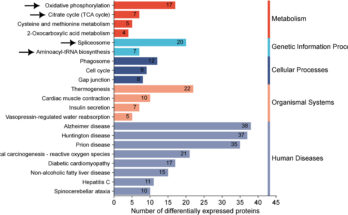
Conventional wisdom suggests that people with the most demanding jobs would have the most trouble sleeping. However, a new study by researchers at the University of South Florida reveals that the relationship between work demands and a good night’s rest is more nuanced.
In fact, their results show that having too few job demands can be just as disruptive to sleep. Instead, moderately demanding jobs predict the most optimal sleep health—with a more regular sleep schedule and shorter time to fall asleep.
An additional factor is how much control individuals have over their working conditions. In the simplest terms, the more control they enjoy, the better their chances of sleeping well.
“The previous knowledge that demanding work degrades sleep may be overly simplistic,” said Soomi Lee, an assistant professor in the USF College of Behavioral and Community Sciences School of Aging Studies who served as a senior author on the paper. “The findings move beyond the previous narrative that job demands should be minimized as much as possible to protect workers’ health.”
This study was led by Monica Nelson, a doctoral candidate in the School of Aging Studies. The paper, “Goldilocks at Work: Just the right amount of job demands may be needed for your sleep health,” appears in the November issue of the journal Sleep Health. The researchers acknowledge that while their findings might initially seem counterintuitive, they suggest that both too few and too many job demands may be related to work disengagement or excessive stress—both of which can disrupt sleep.
In their study, the researchers note that poor sleep has been linked to numerous health problems, including cardiovascular disease, dementia and early death. Therefore, identifying and addressing factors that contribute to poor sleep—including job-related demands—can be important to improving overall health and warding off issues down the road.
“Past research suggests you need moderate exposure to stress to perform better,” Nelson said. “We were motivated by this concept and examined whether sleep health would have a sweet spot with moderate exposure to job demands.”
The researchers analyzed data from a previous study of nearly 3,000 adults with an average age of 48 years old, split nearly evenly between men and women. About half of participants possessed at least a four-year college degree.
The study participants were asked about five aspects of their jobs: intensity, role conflict, work overload, time pressure and interruptions.
They also responded to questions about five aspects of their sleep patterns: regularity, satisfaction/quality, daytime alertness, efficiency and duration.
Other key findings from the study:
- People sleep best if they have moderate job demands and adequate control over their work. This means providing input about their work tasks, making decisions about their work environment, and learning new things at work.
- The study’s findings can raise awareness of the job demands-job control balance, helping employers and employees find appropriate work environments that lead to improved sleep health for employees.
“Based on these findings, it will be important to examine whether and how changes over time in job demands and control are associated with changes in sleep health,” Lee said.
Monica E. Nelson et al, Goldilocks at work: Just the right amount of job demands may be needed for your sleep health, Sleep Health (2022). DOI: 10.1016/j.sleh.2022.09.002
Citation:
Too many—or too few—job demands can spoil a good night’s sleep (2022, November 29)
retrieved 4 December 2022
from https://medicalxpress.com/news/2022-11-manyor-fewjob-demands-good-night.html
This document is subject to copyright. Apart from any fair dealing for the purpose of private study or research, no
part may be reproduced without the written permission. The content is provided for information purposes only.
Source link




